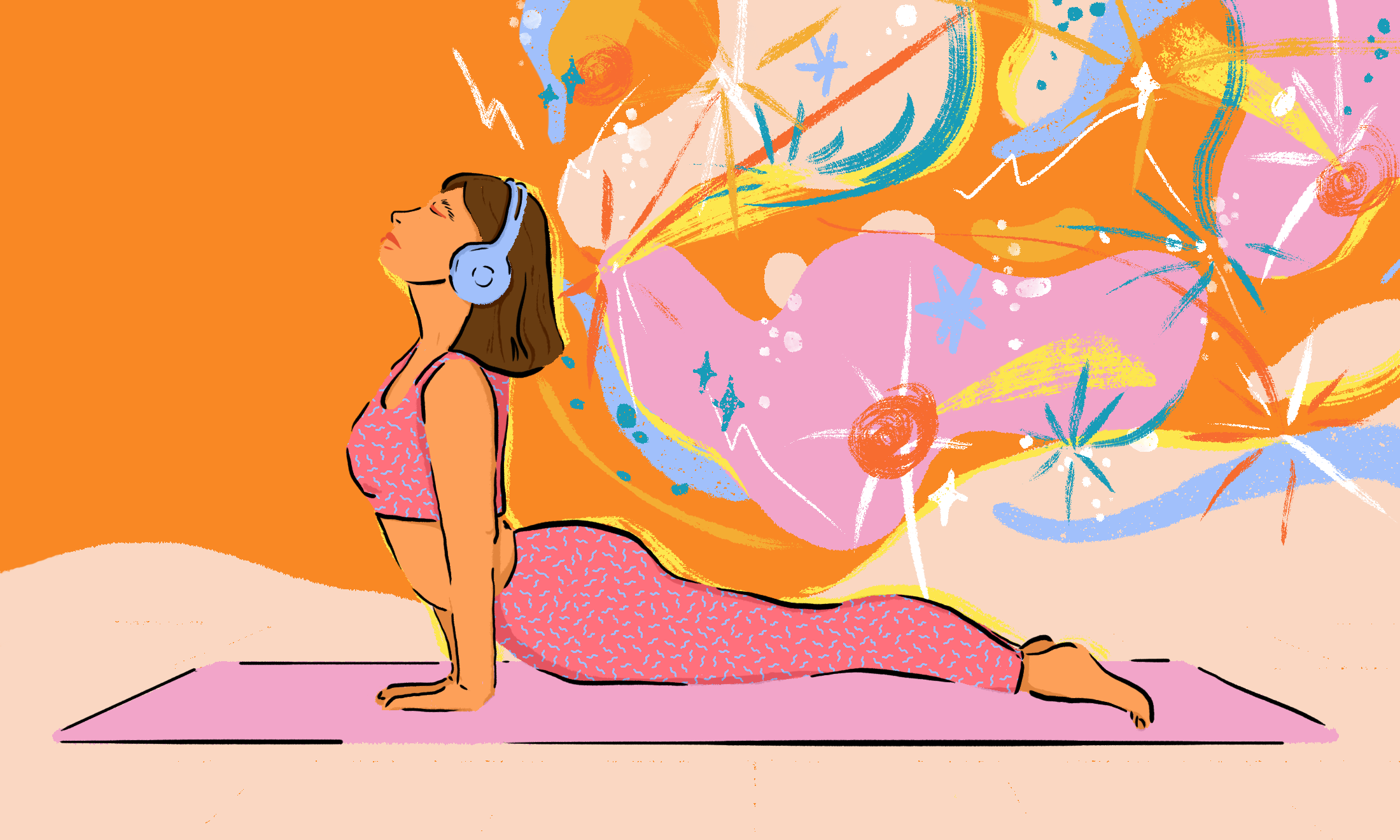
‘There’s this assumption that once you have a child your career is over’: motherhood and the music industry
There might be greater visibility for pregnant people in music, but with touring, finances and lack of support and infrastructure, many of those working in the sector still express that childcare can feel impossible to navigate.
Ray Sang
15 Aug 2021
Earlier this year, Little Mix made history as the first all-woman group to win the award for Best British Group at the Brit Awards. It’s quite unsettling to think that in 2021 there are still so many firsts when it comes to women in the music industry. And, despite the increased visibility on our screens and charts, there is a long way to go when it comes to tangible opportunities, access and representation.
However, their win was historic for other reasons.
Two out of three of the Little Mix members collected their award while clutching their baby bumps, with fellow pop singer and double-nominee Jessie Ware also pictured pregnant on this year’s red carpet. More recently, Halsey echoed this sentiment celebrating pregnant and postpartum bodies with the artwork for their new album, If I Can’t Have Love, I Want Power. While this is no doubt a sign of progress, where mothers in music are concerned, there will be no champagne popping just yet. These are baby steps rather than strides towards the changes required to create an environment in which pregnant people within the industry can thrive.
“Many of the challenges mothers in music face are structural and will require a complete overhaul of the systems that have lost their ability to function adequately – or, as with every other industry dominated by men, systems that were never built to accommodate women in the first place”
Speaking to 20 women working across the UK industry, it became clear many of the challenges mothers in music face are structural and will require a complete overhaul of the systems that have lost their ability to function adequately – or, as with every other industry dominated by men, systems that were never built to accommodate women in the first place. These include – but are not limited to – the cost of childcare, low pay in the industry (particularly for artists) and setting realistic expectations around touring and working hours.
Some artists have successfully been able to find workarounds as singer-songwriter Cilla Rae explains, “I remember asking Rebecca Ferguson, ‘how do you manage going on tour and having kids at the same time when they’re all of school age?’ And she just said that she schedules all her tours around half-term and brings a nanny with her.” But this course of action is only viable for those who have the financial means to do so, not everyone.
Then there are the actual attitudes and views held towards mothers themselves. In addition to adverse feelings towards pregnancy in the industry, there is a tendency to believe that, due to the inability to be always readily available, mothers who work in music are somehow less dedicated to the cause.
But why is this? For artists, motherhood and responsibility isn’t looked upon as marketable, especially for those who already have children. Singer Alika shares that she was told “men have to want to fuck you and women have to want to be like you”. Women in the industry – especially Black women and women of colour – are sold the idea that they need to be sex symbols to sell their records, and anything that deviates from that mould is less than desirable. Across my conversations, it becomes clear that the music industry perception is that becoming a mother suddenly means you can no longer like hip-hop, relate to an under-25 audience or leave your child at home to go and work; ideas that are laughable at best.
“For artists, motherhood and responsibility isn’t looked upon as marketable, especially for those who already have children. Singer Alika shares that she was told ‘men have to want to fuck you and women have to want to be like you'”
As a result, many mothers in the industry are not afforded the privilege of being themselves, with many subsequently hiding the fact that they have children.
Previously, across every industry the dominant narrative was that having a baby meant the end of your career, leading women to choose their job over starting families. The SoFi and Modern Fertility study found that 60% of it’s respondents were willing to delay starting a family until they reached a certain job title. For those trying to climb the career ladder with their sights set on senior management, there wasn’t a clear point to stop, especially with the constant fear of being passed over for a promotion once children entered the equation. “There is this assumption that once you have a child your career has come to an end or to a halt,” shares Cilla Riae.
Other inquiries have revealed that job applicants that didn’t reference children were twice as likely to get called in for an interview, highlighting just how difficult it is for mothers to get back into the workforce after taking maternity leave. The general consensus appears to be that the birth of a child somehow makes women less reliable, leading those in positions of power to bar their access to opportunities by failing to consider them in the first place. “I would still like to know if there’s something going on, give me the option to say no!” says Cilla.
The fears around how parenthood will impact music careers seem to surface among many prior to childbirth, beginning with pregnancy. Some women I spoke to said they’ve felt they aren’t allowed to enjoy this period due to thoughts and projections about whether they are making the wrong decision. Take all the negative discourse around Cardi B when she announced her first pregnancy, with several fans taking to social media to express their disappointment at the fact she was expecting at such a pivotal point in her career. Despite later having to cancel her summer tour dates to focus on the health and wellbeing of her child, her initial comments were a powerful statement of defiance: “Why can’t I have both?”, she responded, when a radio host asked if she would give up music and become a stay-at-home parent.
The rapper went on to win a GRAMMY for best rap album, proving that the birth of her children would have no bearing on the growing trajectory of career. While it may be tempting to label Cardi as an exception and chalk her success down to the rapper’s own sense of determination, the music industry continues to provide examples of artists that have successfully been able to balance their careers and parenting including the likes of Ciara who was captured 10 months pregnant in the ‘Rooted’ music video and Queen Bey herself whose radiant golden image we all remember while she performed pregnant with her twins. It’s important to recognise the financial privilege of these artists, and the fact that they are in relationships, leading to subsequent assistance – a reality which may not be reflected in the lives of single parents or emerging musicians with different budgetary means. What their actions do exemplify however is a small shift away from the ideals older generations of artists had to face and the sentiments echoed by Paloma Faith in her BBC documentary surrounding women feeling like there was no way to transition into motherhood without their career taking a hit.
“Lots of women gal-dem spoke to expressed feeling nervous about taking time off-air in fear of being replaced, with many subconsciously internalising this pressure to prove themselves in order to avoid being written off”
Even with this growing visibility, expectant mothers often grapple with the idea that they will now be seen as a liability. Lots of women gal-dem spoke to expressed feeling nervous about taking time off-air in fear of being replaced, with many subconsciously internalising this pressure to prove themselves in order to avoid being written off.
Artist manager Bianca Wilson’s career has grown from strength to strength since the birth of her daughter, and she is determined to show success can be achieved through hard work and an efficient support system.
Support, of course, is subjective, but a few suggestions put forward centre on flexible working hours, childcare and general consideration for parents in the workplace. Covid-19 has undoubtedly initiated a lot of that work with changes in attitudes towards the efficiency of flexible working, but there is still more to do. “Nobody gets up at 10am to start a [recording] session,” explains Cilla Raie, who believes that artists who are mothers would benefit from earlier recording sessions when children are at nursery. An increase in child-care in music industry workspaces would help to reinforce this. “Crèches are a statement that you accept that children are born [and] someone has to look after them, that is a statement of intent – and the loss of them is a statement of intent,” says Sally-Anne Gross, a course leader in MA Music Business Management at the University of Westminster.
The music industry may also have things to learn from other sectors – for example, for behind-the-scenes roles, there could be the implementation of job-sharing as is done within teaching. Normalising co-working and the idea of sharing work would ease the transition for mothers returning to their roles. For others the battle begins at home in recognising that a little bit of encouragement goes a long way. For those with partners, they can offer a great first line of defence by simply reminding working mothers that they have their family unit’s full support, and that the onus of childcare is not simply on one person.
Structural changes may take a while to happen, but there’s no reason why a shift in attitude cannot begin now. Women shouldn’t have to base such life-changing decisions around work schedules, yet when talking to gal-dem, several interviewees mentioned women who had ended up having to leave the music industry to focus on raising their children; though understandably no one wanted to give names.
“People need to see others successfully balancing being a mother and working within the industry reflected back at them enough to know that, if they are then in that position, the support and lack of judgement exists for them to do the same”
While the decision to do so is admirable, it’s likely that also seeing women do the opposite and balancing both would normalise the idea that women can in fact have successful careers in the music industry whilst being parents. Lead vocalist of Kinaara, Satnam Galsian says, “Mainstream representation would show that it’s possible; the potential impact of which shouldn’t be underestimated.” Visibility is absolutely key. People need to see others successfully balancing being a mother and working within the industry reflected back at them enough to know that, if they are then in that position, the support and lack of judgement exists for them to do the same.
Navigating all this can be a very isolating experience when there’s no blueprint or handbook available to help aid mothers in this space, as music distribution company AWAL’s VP of international marketing Victoria Needs explains: “I couldn’t understand how I would logistically deal with having a child that was school age, [while] working, and what that would look like. But I didn’t know who to ask.” It is clear that there needs to be some kind of space for women in music to support others who are going through pregnancies and manoeuvre their way around various other aspects of their careers whilst having children.
With so many feeling the same, thankfully there are now organisations out there seeking to connect the dots, including the Oh Yeah Centre’s Mothers in Music programme in Belfast, and the Mothers Across Music Initiative (MAMI). Founded on International Women’s Day 2018 by Liberty Music PR boss Bee Adamic, the initiative was set up to remedy the fact that, despite having several programmes to support women in the industry, there was a clear lack of presence and community around mothers in music. MAMI offers virtual networking events and panels, bringing an array of mothers together for open discussions on the joys and challenges of being a working parent . The team is currently creating a guidebook for touring pregnant people, and also has plans for the launch of a new podcast.
“The industry and fans alike must start looking at parenthood as an enhancement rather than a hindrance”
Other initiatives supporting mothers in music also include Women’s Work, who are based in Belfast and were set up in response to the ludicrous claim that there weren’t enough women to book for festivals.
“It remains important that the female body isn’t seen as a negative or disruptive in any way. It’s beautiful, powerful and inspiring,” says artist manager Charlene Hegarty. The industry and fans alike must start looking at parenthood as an enhancement rather than a hindrance.
Creating space where women are able to have open, honest, comfortable conversations around parenthood is a good place to start. There need to be child-friendly working hours and greater emphasis placed on childcare within employee benefit packages, too – this will all aid in the move towards more positive and supportive environments for working mothers.









